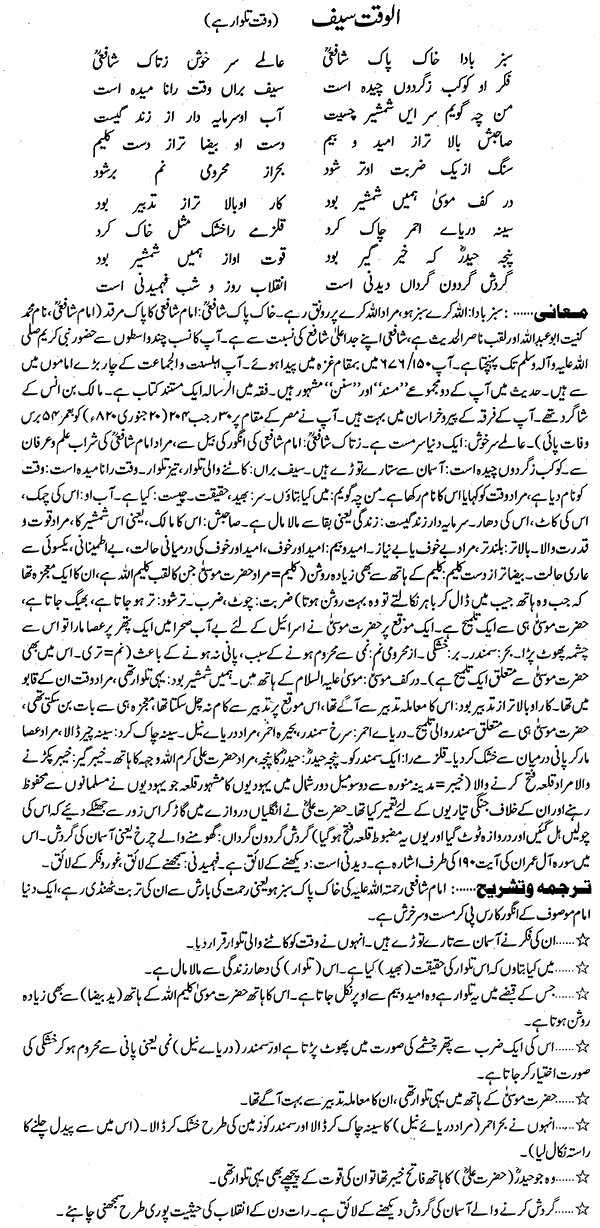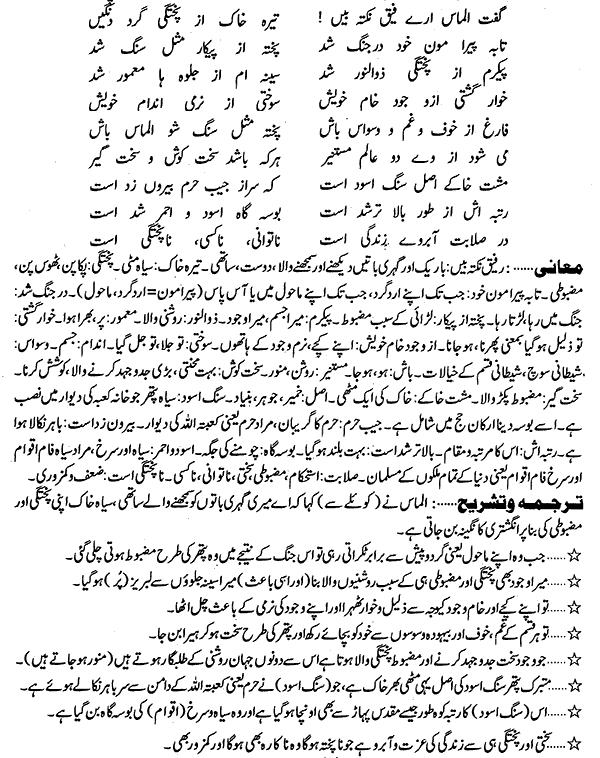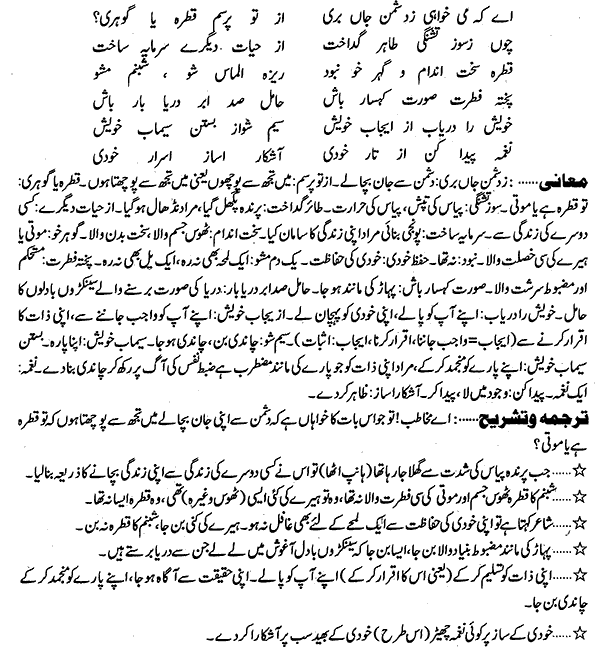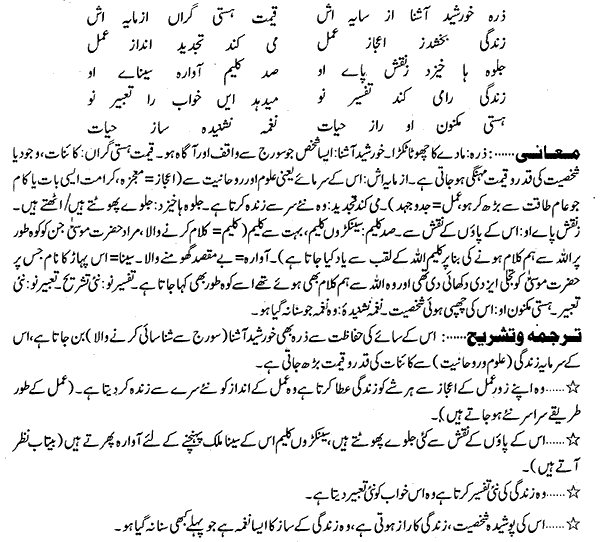An Invocation
O thou that art as the soul in the body of the universe,
Thou art our soul and thou art ever fleeing from us.
Thou breathest music into Lifeʹs lute;
Life envies Death when death is for thy sake.
Once more bring comfort to our sad hearts,
Once more dwell in our breasts!
Once more demand from us the sacrifice of name and fame,
Strengthen our weak love.
We are oft complaining of destiny,
Thou art of great price and we have naught.
Hide not thy fair face from the empty handed!
Sell cheap the love of Salman and Bilal!
Give us the sleepless eye and the passionate heart,
Give us again the nature of quick silver!
Show unto us one of thy manifest signs,
That the necks of our enemies may be bowed!
Make this chaff a mountain crested with fire,
Burn with out fire all that is not God!
When the people of Islam let the thread of
Unity go from their hands,
They fell into a hundred mazes.
We are dispersed like stars in the world;
Though of the same family, we are strange to one another.
Bind again these scattered leaves, Revive the law of love!
Take us back to serve thee as of old,
Commit thy cause to them that love thee!
We are travellers: give us resignation as our goal!
Give us the strong faith of Abraham!
Make us know the meaning of “There is no god,”
Make us acquainted with the mystery of “except Allah”!
I who burn like a candle for the sake of others
Teach myself to weep like that candle.
O God! a tear that is heart‐enkindling,
Passionful, wrung forth by pain, peace consuming,
May I sow in the garden, and may it grow into a fire
That washes away the fire‐brand from the tulipʹs robe!
My heart is with yester‐eve, my eye is on to‐morrow:
Amidst the company I am alone.
“Every one fancies he is my friend,
But none ever sought the secrets within my soul.”
Oh, where in the wide world is my comrade?
I am the Bush of Sinai: where is my Moses?
I am tyrannous, I have done many a wrong to myself,
I have nourished a flame in my bosom,
A flame that burnt to ashes the wares of understanding,
Cast fire on the skirt of discretion,
Lessened with madness the proud reason,
And inflamed the very being of knowledge:
Its blaze enthrones the sun in the sky
And lightnings encircle it with adoration for ever.
Mine eye fell to weeping, like dew,
Since I was entrusted with that hidden fire.
I taught the candle to burn openly,
While I myself burned unseen by the worldʹs eye.
As last flames burst forth from every hair of me,
Fire dropped from the veins of my thought:
My nightingale picked up the grains of spark
And created a fire‐tempered song.
The breast of this age is without a heart,
Majnun quivers with pain because Laylaʹs howdah is empty.
It is not easy for the candle to throb alone:
Ah, is there no moth worthy of me?
How long shall I wait for one to share my grief?
How long must I search for a confidant?
O Thou whose face lends light to the moon and the stars,
Withdraw Thy fire from the soul!
Take back what Thou hast put in my breast,
Remove the stabbing radiance from my mirror,
Or give me one old comrade
To be the mirror of mine all‐burning love!
In the sea wave tosses side by side with wave:
Each hath a partner in its emotion.
In heaven star consorts with star,
And the bright moon lays her head on the knees of Night.
Morning touches Nightʹs dark side,
And To‐day throws itself against To‐morrow.
One river loses its being in another,
A waft of air dies in perfume.
There is dancing in every nook of the wilderness,
Madman dances with madman.
Because in thine essence Thou art single,
Thou hast evolved for Thyself a whole world.
I am as the tulip of the field,
In the midst of a company I am alone.
I beg of Thy grace a sympathising friend,
And adept in the mysteries of my nature,
A friend endowed with madness and wisdom,
One that knoweth not the phantom of vain things,
That I may confide my lament to his soul
And see again my face in his heart.
His image I will mould of mine own clay,
I will be to him both idol and worshipper.





















































